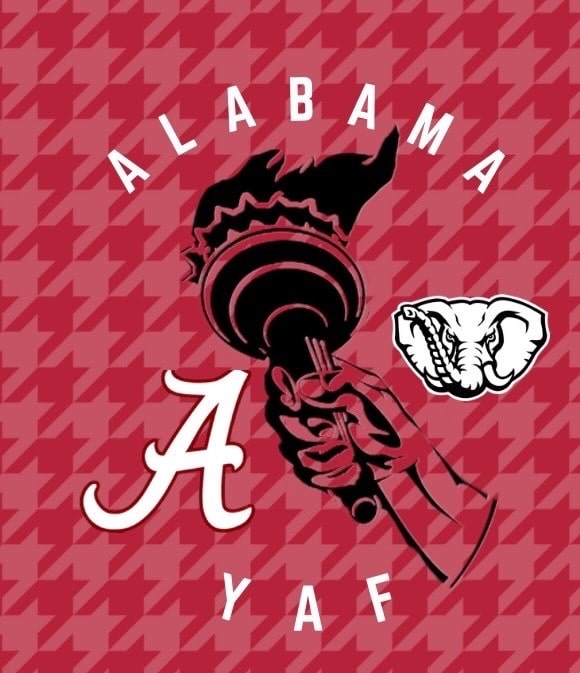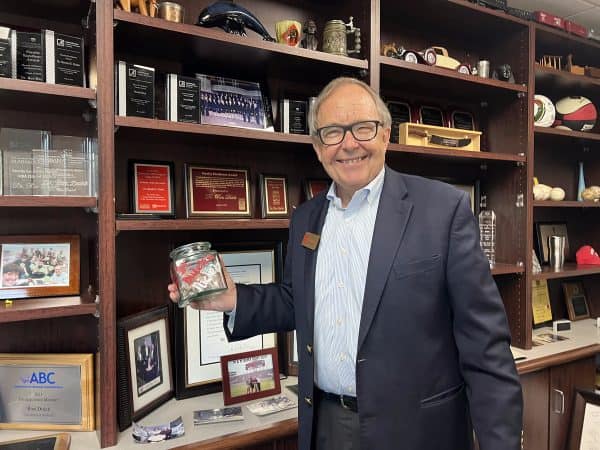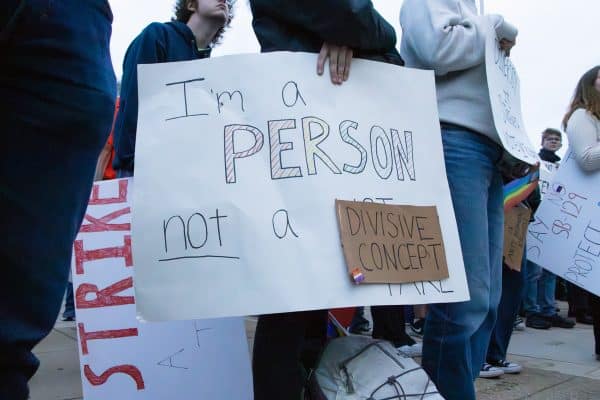Letter to the Editor | The fight for freedom & an open dialogue
October 21, 2022
Wyatt Eichholz currently serves as the UA Young Americans for Freedom chapter president, and Christian Calvert serves as director of outreach.
“If liberty means anything at all, it means the right to tell people what they do not want to hear.”
Those are the words of George Orwell, of “1984” fame. As an organization, Young Americans for Freedom shares Orwell’s conviction. We believe the First Amendment to the Constitution’s protection of the freedoms of speech, press and assembly have served for over two centuries as the foundation for the advancement of free thought in our country.
The First Amendment grants legal protection and a leg to stand on for those whose ideas would be swept away or silenced in countries where citizens are not given such freedoms. These freedoms, however, are increasingly under threat in our culture today, and the pattern of ideas that invite this challenge is quite intriguing.
At YAF, we believe in traditional values: those values that have been held for hundreds of years. We see the world from a perspective of faith, that our rights are given to us by God. For others to try and challenge these rights is something we will not back down from, and our pledge to students and to our fellow citizens is that we will always fight for the cause of freedom.
That leads us to today. The University of Alabama chapter of YAF invited the prominent conservative commentator Matt Walsh to visit Tuscaloosa and speak on campus. Walsh recently released a Daily Wire documentary titled “What Is a Woman?” and for such a seemingly straightforward question, it has sparked a large amount of national controversy.
There are even those at The University of Alabama that, if they had it their way, would not allow YAF or Walsh to screen this documentary or to have a discussion on the subject.
This is odd, considering that The University of Alabama is a place of higher learning. Shouldn’t it be our commitment as students to ask questions and seek truth in all things? Why then, is it becoming increasingly acceptable to shut down the views of others and to try to keep them from being freely expressed on campus?
By no means are the ideas put forward by Walsh the most “extreme” or “outlandish” to have ever visited one of the University’s classrooms. Indeed, most of his “problematic” views are the same ones that Americans have held for decades, even centuries.
When did it become a grave moral offense to define a word? When did it become unacceptable to ask a simple question? Our belief is that it never did; some just don’t like to have their ideas challenged and would rather shut down any opposition. YAF’s mission is to ensure that doesn’t happen and that the rights of every student are defended.
Questions like “Is the sky blue?” or “What is two-plus-two?” are in the same vein, yet we do not throw protests or write petitions over them (although it may just be a matter of time before we do). But when we asked, “What is a Woman?” we were told that a woman is a type of vague term with no clear meaning. We got answers like “a social construct,” “half of the world” or “not a man.”
Perhaps the least helpful answer of all: “a woman is whatever they want to be.” (These are real responses that we were given by students at the University when we asked, “What is a woman?”)
If a woman is just “whatever they want to be,” that opens up a myriad of problems and creates even more questions than it answers. After all, if we can’t define what a woman is, or if anyone can be a woman, then the word “woman” really has no meaning at all.
And if “woman” has no meaning, then a lot of other things don’t either. Does this mean we can no longer understand the enigmatic concepts of “women’s suffrage” or “women’s health” or “the women’s restroom?”
Substitute definitions about “feeling like a woman” are perplexing because they offer no substance. How can you feel like a woman if you cannot determine what a woman is to begin with? The answer “A woman is someone who identifies as a woman” is the very definition of a circular statement.
This whole notion perplexed Walsh as well, and the fact that the topic is now considered “off-limits” concerned him. So, he decided to go to the experts: doctors, psychologists and gender studies professors. The answers he received were sometimes bewildering, and sometimes shocking. Yet these types of answers have become the official standard mandated by establishment institutions, and any common-sense response can get a person deplatformed or worse.
Redefining the word “woman” is like trying to tell somebody that up is down or left is right. We know what a woman is; but you can’t say so without upsetting some. There are innate differences between men and women, and they are clearly defined; they have been known for centuries.
In our view there is only one way to define it, starting at the biological truth: a “woman” is an adult human female.
This controversy has made its way to The University of Alabama, and Walsh agreed to come down and add to the discussion. We believe it would be beneficial to all members of the student body to have the opportunity to listen and ask questions — to hear opposing views and search out the truth, to have a dialogue, and to encourage free speech and open debate.
But others prefer to discourage this freedom and would rather impose their worldview on the rest while silencing anyone who opposes them. In fact, there is now a petition on Change.org circulated by some students at the University trying to do just that.
In YAF’s view, this is antithetical to a functioning free and open society, and is the very thing our forefathers fought against. We encourage our student body, faculty and community to join us in our pursuit of freedom and truth, and perhaps in doing so, to finally be able to answer the question “What Is a Woman?”
Interested in submitting your own letter to the editor? Email [email protected].











